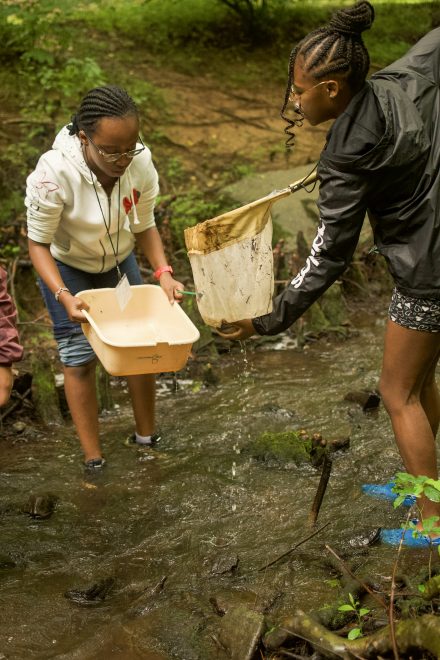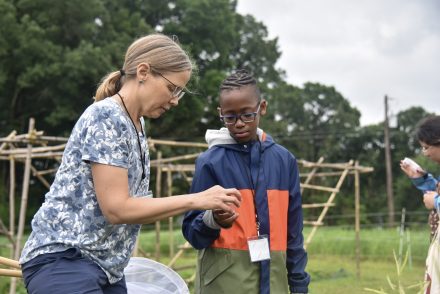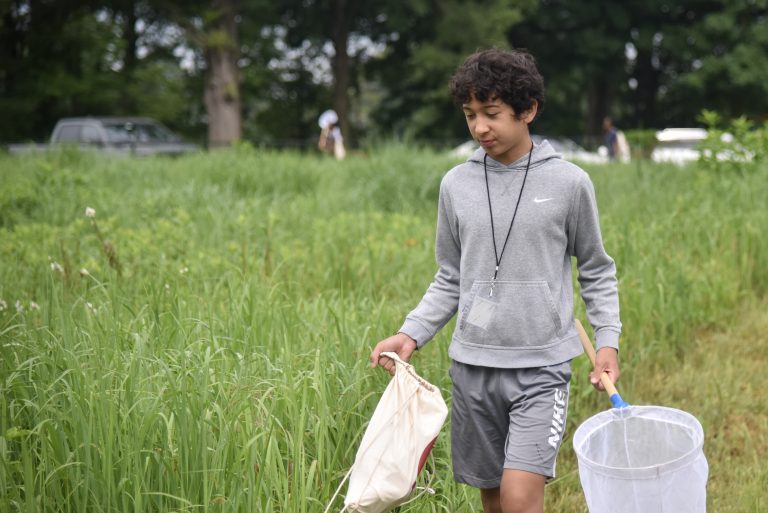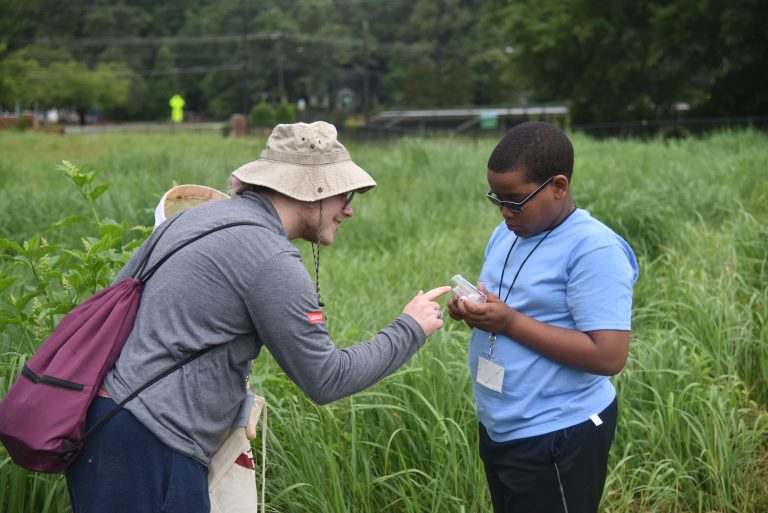Twenty-two middle schoolers spent the week identifying invertebrates and building insect collections, getting a hands-on glimpse into what scientists do daily.
Middle school is a pivotal time for many students when it comes to their engagement with STEM-related topics and consideration of possible career paths. It is around this age that students arrive at a proverbial fork in the road: some continue down the path of science learning and coursework, while many may feel that they “aren’t good at science” and lose interest in the field.
That’s where Elon’s annual Elon Explorers program comes in. The objective of the the program’s week-long summer bug camp is to support the sense of wonder students feel about scientific thinking and remind them that science is for all.

Twenty-two middle schoolers from the Alamance-Burlington School System recently spent the week as Elon Explorers, identifying invertebrates and building insect collections and getting a hands-on glimpse into what scientists do daily. At locations like Loy Farm and the pond near Schar Center on Elon’s campus as well as surrounding locales like the Plant and Pollinator Center at UNC-Greensboro and Cedarock Park, students came away from the program a little more informed about how science works, and hopefully, with increased affinity for nature and for engaging in science.
Jen Hamel, associate professor of biology and co-lead for the Elon Explorers program, said it’s important for students to do this work, as the world is ever-changing.
“It’s really important to document what’s in a place at a time. Biologists use collections [like what the students are putting together] in museums, for long-term studies to see what was here 150 years ago versus what’s here now,” Hamel said.
“We’re trying to help them build skills of looking and identifying what’s around them. Many people look at a bee and identify it as a bee. But there are about 3,600 species of bees in North America. If you look closely, you can start to see that variety in nature. We’re trying to help the campers develop that ability to see a little bit this week,” she added.
Mark Enfield, associate professor of education and also co-lead for the Elon Explorers, said along with the educational benefits of the program there is also something to be said about the many benefits of being in nature as some students may not have ease of access to it.
“Getting outside and seeing this is not harmful, it’s safe, it’s fun, it’s interesting, is another benefit,” Enfield said. “Last year, there was a student who said on the first day, ‘I don’t want to touch bugs at all.’ By the end of the week, that student was trying to keep some insects and rear them on their own. That’s what we look for.”

Elon Explorers is one of the Student STEM Enrichment Programs (SSEP) in North Carolina and received a grant of $147,570 from the Burroughs Wellcome Fund in September 2021. The grant allowed for the program to expand into year-round programming, such as the monthly Science Slices science cafes that allow students to become more familiar with science concepts while building connections with one another and their families.
After the end of the three-year Burroughs Wellcome Fund grant, the program will be looking for funding to grow the program in other areas of STEM and to help it become a long-term offering for the community at Elon.
“We want to expand to other STEM fields. There’s a big interest in things such as engineering, so it’d be cool to offer that,” Enfield said.






